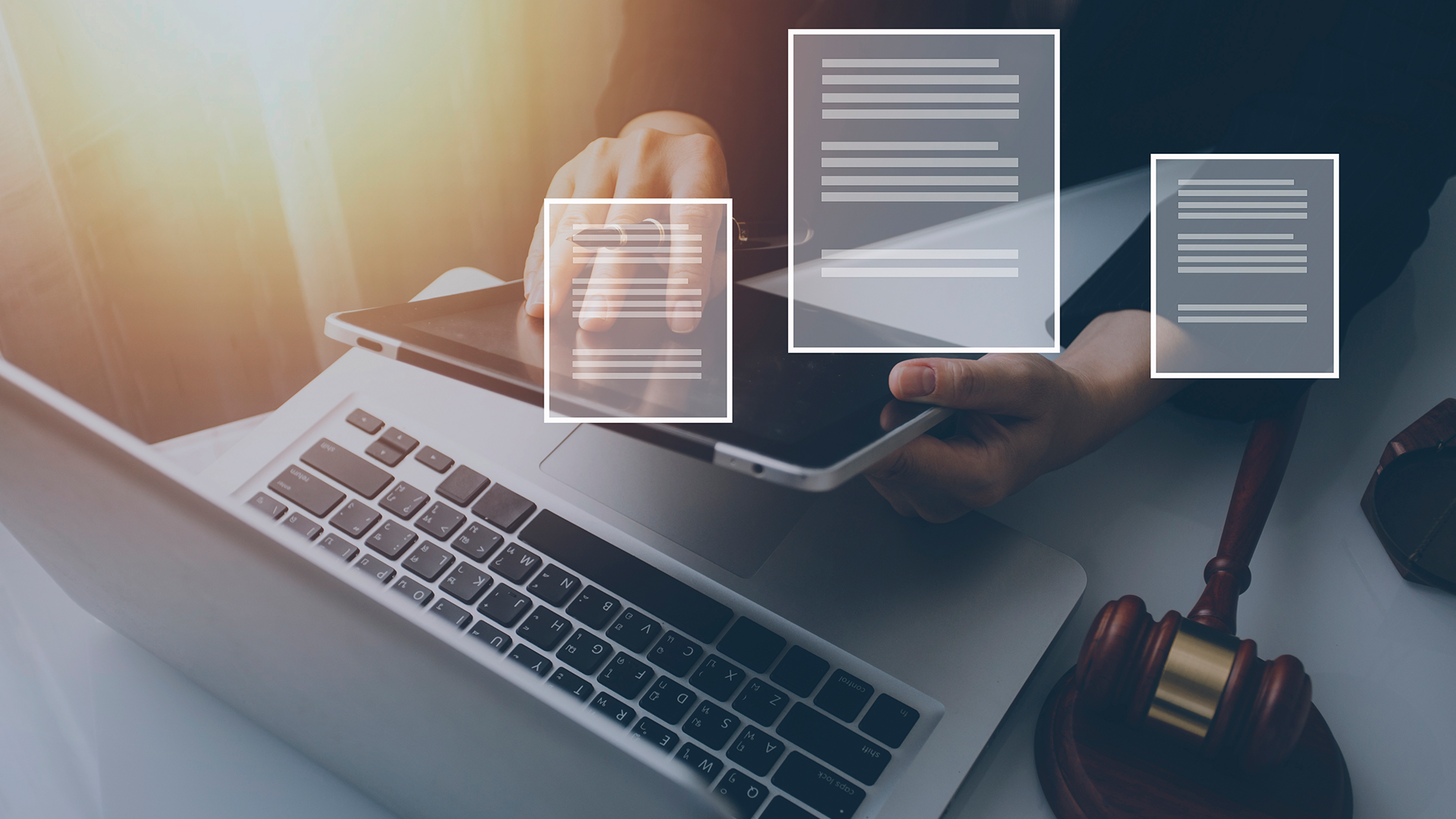
Thank you
Our team of industry domain experts combined with our guaranteed SLAs, our world class technology .


Get Immediate Help
As businesses digitise and data flows like never before, navigating the landscape of data security and privacy laws has become a significant challenge. In today’s regulatory environment, compliance with privacy laws for businesses isn’t just about avoiding fines; it’s about safeguarding customer trust and protecting sensitive information. Understanding where data security and privacy intersect is crucial to shaping a comprehensive security framework that aligns with both business goals and legal requirements.

Before we dive into the intersection of these two critical areas, let’s clarify what data security and privacy entail. Data security involves protecting data from unauthorised access, breaches, and cyber threats. In contrast, data privacy refers to the ethical and legal handling of personal data—how it’s collected, stored, shared, and used, with an emphasis on individual rights.
For businesses, these concepts are interlinked yet serve distinct purposes:
- Data security ensures that data, whether personal or corporate, is safe from attacks and misuse.
- Data privacy ensures that the handling of personal information aligns with legal and ethical standards.

Compliance with privacy laws requires robust data security measures to ensure the protection of personal information. For example, GDPR mandates that organisations “implement appropriate technical and organisational measures” to safeguard personal data. Here’s how data security compliance supports privacy compliance:
1. Encryption – Using encryption for both data in transit and at rest is a primary method for protecting sensitive data, making it unreadable to anyone without authorised access.
2. Access Control – By limiting access to personal data based on roles and authorisation, businesses reduce the risk of accidental or malicious data breaches.
3. Incident Response Plans – Privacy laws like GDPR and CCPA require timely breach notifications. A robust incident response plan allows businesses to detect, respond to, and report breaches swiftly.
4. Data Anonymisation and Pseudonymisation – Privacy laws encourage the use of these techniques to de-identify personal data, which can protect privacy while allowing data analytics.

With the increasing number of regulations and data privacy best practices to follow, businesses are tasked with creating a cybersecurity framework that satisfies multiple regulatory requirements. Here are some foundational practices:
- Risk Assessment: Identify and evaluate risks to personal data within your systems. Regular assessments reveal vulnerabilities that need addressing to prevent data breaches.
- Privacy by Design: Integrate privacy and data protection considerations into your operations from the start, rather than as an afterthought.
- Regular Audits and Assessments: Performing regular cybersecurity audits ensures your systems are compliant and effective against emerging threats.
- Data Breach Notification and Incident Management: Privacy laws often mandate that businesses notify affected individuals in case of a data breach within a certain time frame. An effective incident management system ensures your organisation can respond appropriately to incidents.

As businesses move to cloud environments, ensuring cloud security and compliance becomes vital. Cloud security encompasses various aspects, from data storage and encryption to access control and network security. Many privacy laws, including GDPR, require specific protections for cloud-stored data, such as encryption, regular security assessments, and access logging.
Moving to the cloud can provide enhanced security features, such as multi-factor authentication and advanced firewalls, but it’s crucial for organisations to understand the shared responsibility model in cloud security, where the provider and customer share security responsibilities.

Adopting a multi-layered approach to data security helps organisations address the dual needs of privacy and protection. Here’s a strategic checklist:
1. Network Segmentation and Firewalls: Separating networks into zones and enforcing firewalls help contain breaches and protect sensitive data.
2. Regular Software Updates and Patch Management: Keeping systems updated is a basic yet critical security measure that prevents exploitation of known vulnerabilities.
3. Data Encryption: Encrypting both stored and transmitted data minimises the risk of unauthorised access.
4. Access Control and Multi-Factor Authentication: Limiting access to sensitive data and requiring multi-factor authentication adds layers of security.
5. Virtual Patching: When legacy systems can’t be updated, virtual patching can secure vulnerabilities.
6. Regular Security Audits and Assessments: Regularly assessing systems for vulnerabilities and updating practices ensures ongoing compliance and security.
In a scenario where businesses need to navigate the complexities of data security and privacy laws, several services provided by Microminder Cybersecurity are instrumental. Here’s how they can help:
1. Data Security Solutions: This service provides foundational security to protect sensitive data across the organisation, ensuring compliance with regulations like GDPR, CCPA, and other data privacy laws. By implementing robust encryption, data loss prevention, and access controls, Microminder helps businesses safeguard their data from breaches and unauthorised access, which is a critical aspect of privacy law compliance.
2. Cloud Security Posture Management (CSPM): For businesses leveraging cloud solutions, CSPM is essential for continuous compliance with cloud-based data regulations. CSPM monitors cloud environments to identify and remediate security misconfigurations and risks, which supports compliance with data protection regulations that mandate secure data storage and handling practices.
3. Identity and Access Management (IAM): Privacy laws require that personal data be accessible only to authorised individuals. IAM solutions by Microminder provide precise access controls, ensuring that only verified personnel have access to sensitive data, which aligns with compliance requirements for data protection and reduces the risk of insider threats.
4. Compliance Services (ISO 27001, GDPR, HIPAA, etc.): Microminder offers services tailored to specific compliance needs, including GDPR and HIPAA, which are critical for organisations in sectors like healthcare, finance, and other data-sensitive industries. These services help businesses establish and maintain compliance with rigorous data privacy standards by conducting risk assessments, audits, and policy development.
5. Regular Audits and Security Posture Assessments: These services help organisations continuously evaluate and improve their security measures to align with evolving privacy laws and regulations. Microminder’s assessments identify vulnerabilities in an organisation’s infrastructure, ensuring that data handling and security practices meet regulatory requirements.
6. Governance, Risk, and Compliance (GRC) Services: GRC services help organisations establish a robust framework to manage and monitor compliance with regulatory standards. This service aids in aligning organisational practices with privacy and security laws, helping companies maintain a proactive approach to data protection and regulatory adherence.
7. Security Awareness & Training Services: Compliance often requires staff to be educated on data privacy and security best practices. Microminder’s training solutions ensure that employees are aware of data protection regulations and are equipped to follow protocols for handling sensitive information securely, thereby reducing the risk of accidental data breaches.
By utilising these services, Microminder supports organisations in developing a comprehensive compliance and data protection framework. This approach not only helps businesses adhere to regulatory standards but also strengthens their data security posture, fostering trust and resilience in today’s data-centric environment.
The intersection of data security and privacy laws is one that no business can afford to overlook. Privacy laws are no longer just about compliance but about demonstrating a commitment to secure customer data. For businesses aiming to protect their data, meet regulatory standards, and ensure data integrity, implementing comprehensive data security measures aligned with privacy laws is crucial.
By leveraging the right cybersecurity tools and expertise, organisations can not only meet today’s compliance requirements but also build a resilient foundation for future growth in an increasingly digital, data-driven world. With the right partner, such as Microminder, businesses can confidently navigate the complexities of data security and privacy law compliance.
Don’t Let Cyber Attacks Ruin Your Business
Call
UK: +44 (0)20 3336 7200
KSA: +966 1351 81844
UAE: +971 454 01252
Contents
To keep up with innovation in IT & OT security, subscribe to our newsletter
Recent Posts
Penetration Testing | 10/11/2025
Cloud Security | 07/11/2025
Cybersecurity | 06/11/2025
What is the difference between data security and data privacy?
Data security focuses on protecting data from unauthorised access, breaches, and theft, ensuring that sensitive information is safeguarded against threats. Data privacy, on the other hand, is concerned with how data is collected, used, and shared, ensuring that personal information is handled responsibly and in compliance with privacy regulations.Why is compliance with data privacy laws critical for businesses?
Compliance with data privacy laws like GDPR, CCPA, and HIPAA helps businesses avoid fines, protect customer trust, and ensure responsible handling of personal data. Non-compliance can lead to legal consequences, financial penalties, and reputational damage.How do data privacy laws impact data storage and processing?
Data privacy laws require businesses to manage data responsibly by enforcing data minimisation, ensuring data is stored securely, and limiting access to authorised personnel only. Companies must also provide transparency on data collection and processing practices and ensure data is deleted when no longer needed.What are some common data security risks that businesses face?
Common risks include unauthorised access, phishing attacks, ransomware, insider threats, and data breaches due to vulnerabilities in network security. Regular assessments and proactive security measures help mitigate these risks.What does ‘data breach notification’ entail under privacy laws?
Most data privacy laws require businesses to notify affected individuals and regulatory authorities in the event of a data breach. The notification must be timely and provide details on the breach, the risks, and measures taken to mitigate the impact.